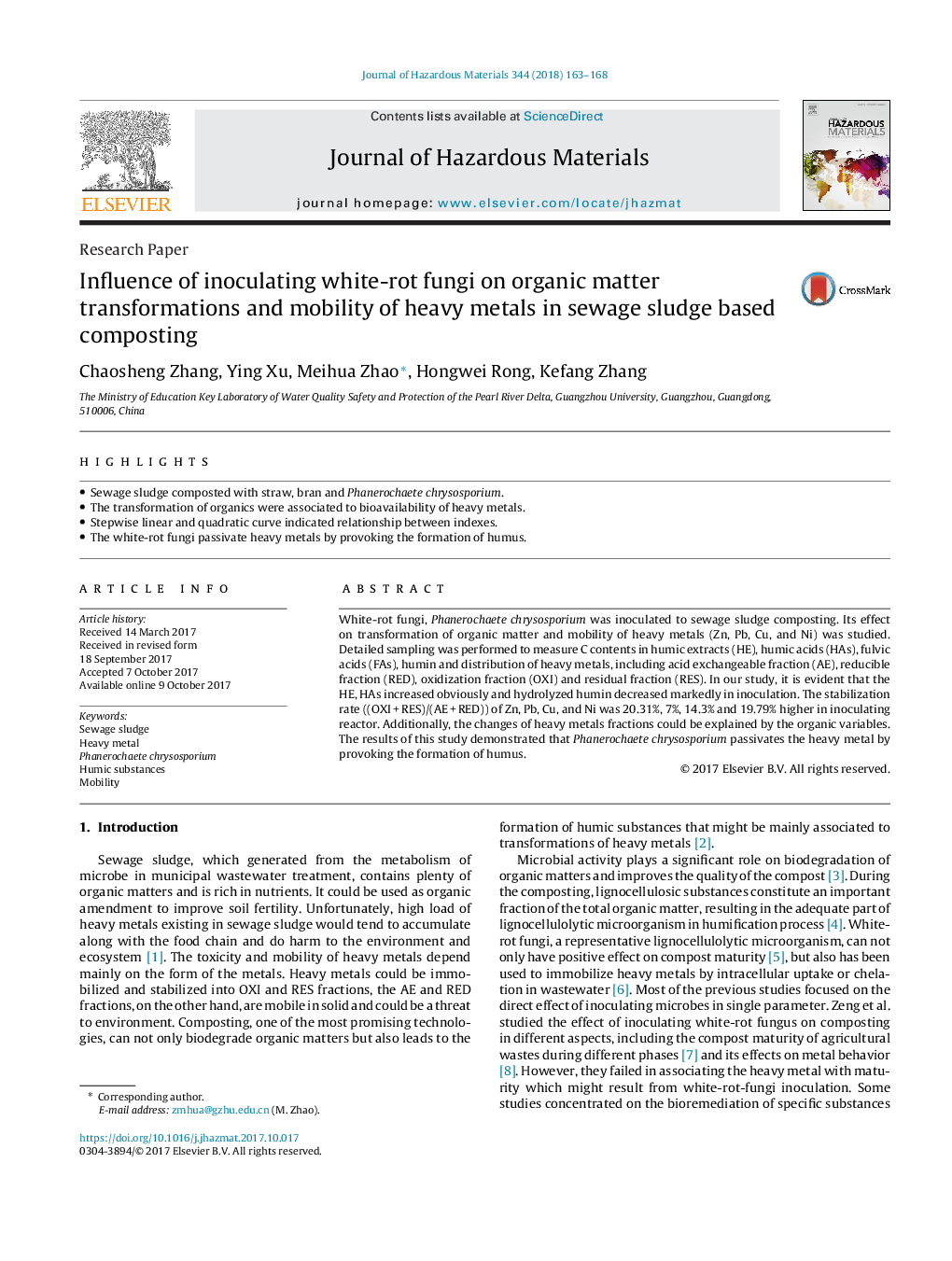| Article ID | Journal | Published Year | Pages | File Type |
|---|---|---|---|---|
| 4979041 | Journal of Hazardous Materials | 2018 | 6 Pages |
Abstract
White-rot fungi, Phanerochaete chrysosporium was inoculated to sewage sludge composting. Its effect on transformation of organic matter and mobility of heavy metals (Zn, Pb, Cu, and Ni) was studied. Detailed sampling was performed to measure C contents in humic extracts (HE), humic acids (HAs), fulvic acids (FAs), humin and distribution of heavy metals, including acid exchangeable fraction (AE), reducible fraction (RED), oxidization fraction (OXI) and residual fraction (RES). In our study, it is evident that the HE, HAs increased obviously and hydrolyzed humin decreased markedly in inoculation. The stabilization rate ((OXIÂ +Â RES)/(AEÂ +Â RED)) of Zn, Pb, Cu, and Ni was 20.31%, 7%, 14.3% and 19.79% higher in inoculating reactor. Additionally, the changes of heavy metals fractions could be explained by the organic variables. The results of this study demonstrated that Phanerochaete chrysosporium passivates the heavy metal by provoking the formation of humus.
Related Topics
Physical Sciences and Engineering
Chemical Engineering
Chemical Health and Safety
Authors
Chaosheng Zhang, Ying Xu, Meihua Zhao, Hongwei Rong, Kefang Zhang,
